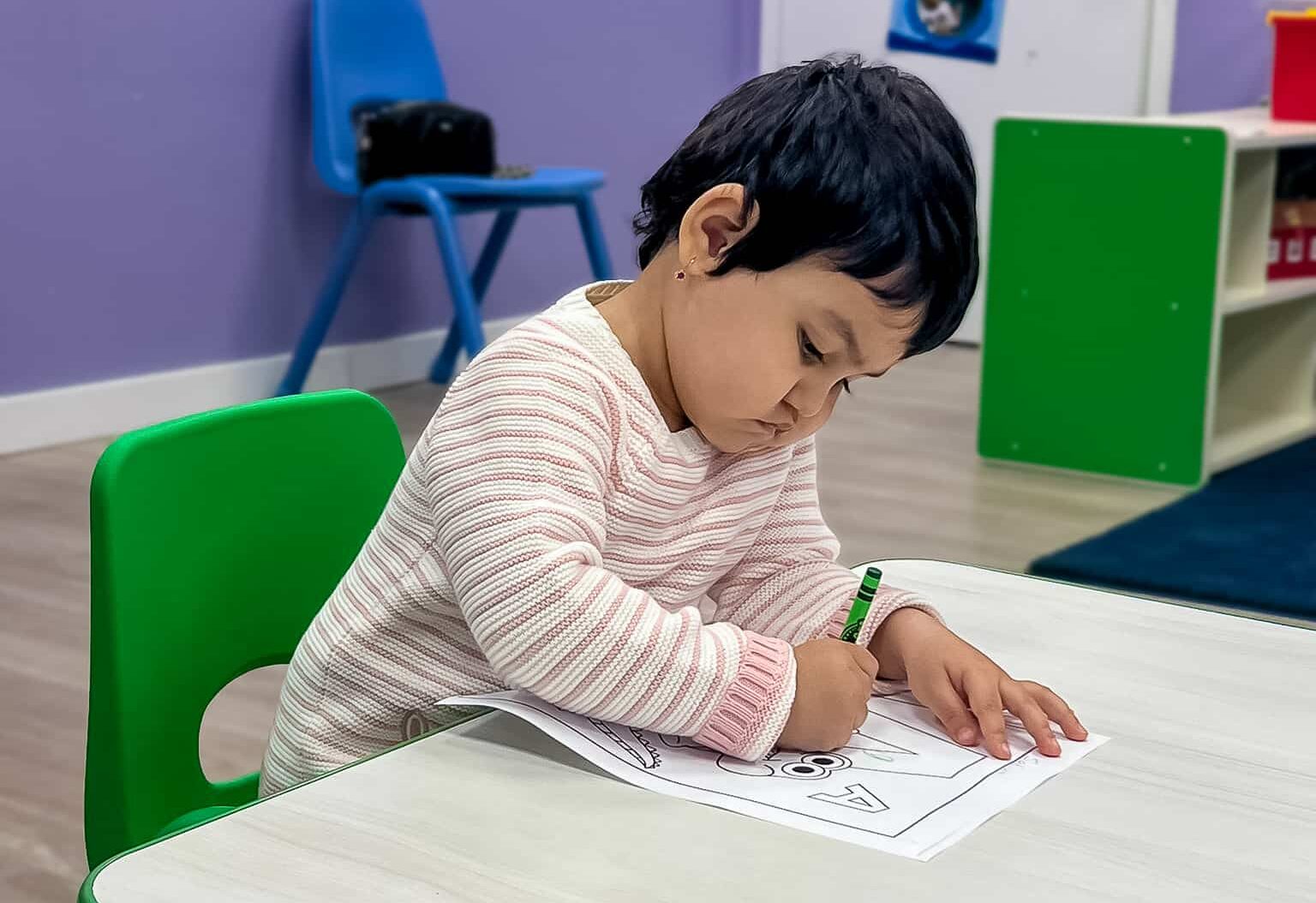
Stress in a child is the body’s reaction to a trigger situation. Nowadays, stress affects most children as their brain activity rises as a result of having to integrate and digest a lot of information known as informational stress. Under the impact of emotional factors, the physiological systems of the body get overworked and that’s when emotional stress occurs.
You can easily spot how stress affects a child. Overwhelming stress is toxic and it may have an impact on a child’s behavior, ability to work, health, and connections with others in the community and within the family. Kids that exhibit signs of stress are typically characterized by behavioral issues, such as moodiness or academic challenges. Enuresis can occur when young children are under stress. You may certainly assist your youngster if he or she exhibits specific signs of stress.
Effects of Stress on the Child’s Brain
According to research, children who experience chronic stress suffer from it just as much as adults do. This is because their developing brains put them in danger of serious cognitive damage. Understanding the physiological impacts of stress on the brain can help us comprehend the challenges that our children experience.
When a child is stressed, the hypothalamus (a compartment in the midbrain) releases a hormone that is sent to the pituitary gland. Another hormone is produced by the very same pituitary gland and travels through the bloodstream to the adrenal glands. Cortisol and adrenaline are produced by the adrenal glands. The child’s heart rate and blood pressure increase as a result of adrenaline. Cortisol raises blood sugar levels, improves cognitive function, enhances muscle strength, and lowers the threshold for pain sensitivity. The body mobilizes in response to stress, but because our brain is not built to sustain such a condition for an extended period of time, defensive systems inevitably fall once they increase. The body is then “managed” by the parasympathetic nervous system, ensuring that it operates normally.
Our “fight, flee or freeze” stress response is made for dire situations where time is of the essence. Unfortunately, modern problems and tasks are not often solved so quickly. Then you might start to ask yourself, “Why is my child stressed” and “How to deal with stress in a child”. First and foremost, you need to identify specific signs of stress and their impact.
What Happens When the Brain is Stressed?
In the body, stress chemicals gradually build up. According to studies, prolonged exposure to cortisol, in particular, harms the brain. Scientists list several types of disorders in the functioning of the brain exposed to stress in a child: neurons of the hippocampus stop functioning properly, neural networks are disconnected, and the production of new neurons slows down. Simply put, it is difficult for the brain under the influence of chronic stress to assimilate new material and store it in memory.
The adult brain is not benefited by any of the aforementioned factors, but the brain of a kid, which is quickly developing and has millions of dendrites, is particularly susceptible to the negative effects of cortisol. Numerous studies have demonstrated that children who experience emotionally traumatic events, such as domestic abuse or corporal punishment, have lower IQs than children who do not.
However, according to recent studies, the stress of all degrees can have an impact on children’s capacity for learning and thought. The researchers came to the conclusion that kids who grow up in “home instability” had lower IQs and more behavioral issues. Additionally, it was shown that children whose parents verbally abused them had less brain white matter and weaker language abilities.
Types of Stress and How they Affect the Child
As mentioned below, there can be distinguished two types of stress for kids:
- Informational stress – most youngsters experience stress because their brain activity increases as a result of trying to process and integrate a lot of information.
- Emotional stress – the physiological systems of the body get overloaded when emotional variables are present.
Depending on personal traits and self-management abilities, children respond to stress in various ways. Changes in behavior might be one way that stress shows itself in kids. Common alterations may include irritability or moodiness, crying, sweaty palms, running away, and even aggressive or defensive outbursts.
According to experts, children can exhibit more widespread reactions to stress such as sadness, apathy, avoidance, obsessive moods, and excessive shyness. Many also suffer from excessive attentiveness, excessive anxiety, “freezing” in social circumstances, obsession with items like rituals or food, and excessive clinging. So it is important for parents to find out what brings peace of mind for children in stressful situations.
Stress is Contagious
Is it sufficient for parents to maintain a peaceful order in the home, abstain from spanking (and other physical punishment), and refrain from verbally abusing their children in order to lessen the number of stressors and to ensure that the child is calm? Of course, this is ideal, but specialists contend that even all of the aforementioned measures may not be sufficient to shield kids from the brain illnesses linked to domestic stress.
Can we share our tension and worry with others around us in the same way that we share our happiness? Internal stress is contagious, meaning that parents’ stress levels can influence children’s cognitive ability. Extreme parental stress, according to scientists, can impair a child’s brain development and be the main reason why the child is worried. The primary element affecting academic performance is emotional stability at home.
It’s intriguing that stress is not only shared but also, to some extent, communicated between individuals. For instance, talking to someone else can help you feel a bit better since you’ve shared some of your nervousness with them. All of this is contingent, of course, but social interaction is nearly always the greatest treatment for stress and sadness, especially for children.
Can Stress be Cured with Stress?
Not all stress is harmful. Although the learning process itself can be beneficial in assisting the proper growth of neurons and the production of synapses, it is also stressful for brains. Parents are advised by scientists to provide their kids with the appropriate kinds of stress and teach them coping mechanisms for potentially detrimental ones.
It’s crucial to remember that stress may not always have a detrimental impact on a child’s brain development. Stress effects aren’t really about “brain damage”, but rather a phenomenon that may be reversed or treated. One point is shared by all specialists–the best medicine is exercise. According to studies, exercise in groups (such as team sports like soccer or racing games) boosts the formation of neurons and the development of the hippocampus.
While parents can try to shield their kids from stress, there are occasions when it is unavoidable due to life’s circumstances and random events. Fortunately, according to experts, parents do not need to confine their kids to a stress-free environment.
How to Get Rid of Stress for a Child
After figuring out how stress affects a child’s brain, it is about time parents know ways to help their little one to get over it. Recognizing and supporting your children’s problems is the first step in helping them. By doing so, you may address stress in a child at its root.
Lack of exercise impacts cognitive functions, attentiveness, problem-solving ability, and general academic performance. It also increases the risk of obesity and other health disorders, and can even be one of the factors in how stress affects a child. So, take your kids outside to play, visit a park, take a hike, or watch a football game with your child. Additionally, you’ll improve your relationship with them, which will aid in stress reduction. Stress can also be reduced or avoided with the aid of a family meal or movie night.
You serve as a role model for good conduct in the child’s eyes. Make every effort to handle your own stress in a healthy way and to keep it under control. Without judging him or attempting a quick fix, simply listen to your child. Collaborate with your child to identify and address their concerns. Foster the child’s sense of value and use encouragement and love.
Stress may affect children, but you can help them cope with it. Try using these easy strategies as a family to manage stress in children.




